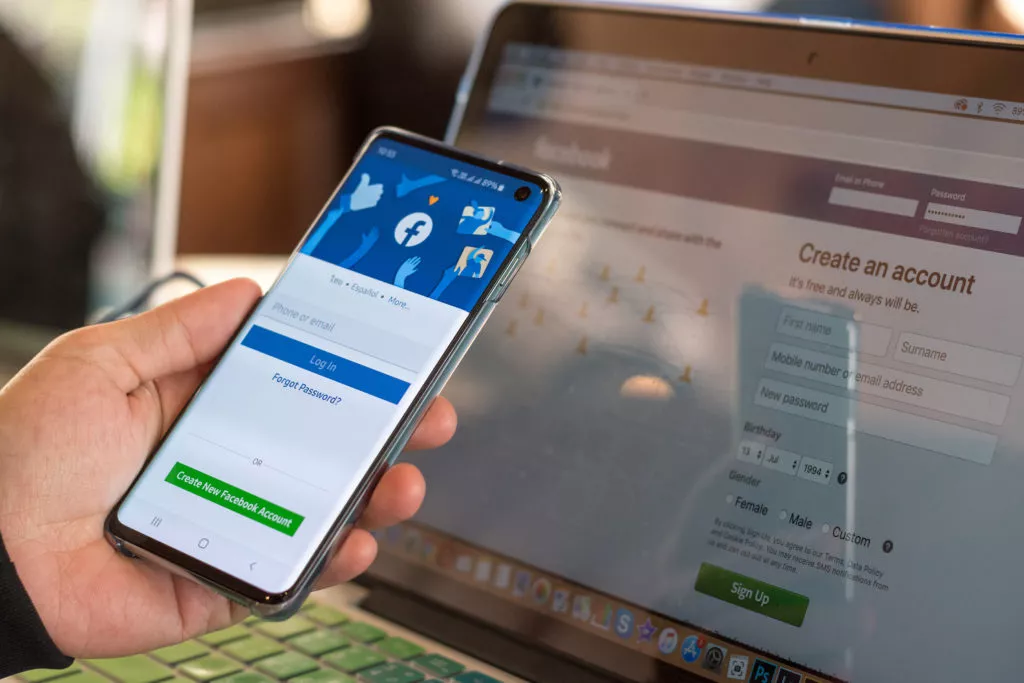Facebook recently published an informative post warning marketers of certain upcoming changes to web and mobile ad campaigns as a result of Apple’s AppTrackingTransparency framework, which will prompt users to give explicit permission to apps that track them for advertising data. These changes, introduced with iOS 14, have required Facebook to respond and reassure businesses that rely on Facebook ad campaigns to reach a target audience.
Overview
What’s Changing with the iOS 14 Update?
Among other things, Apple is aiming to reaffirm their commitment toward user privacy and data use. As per their explanatory post, Apple says: “In order to submit new apps and app updates, you need to provide information about some of your app’s data collection practices on your product page.
“And starting with iOS 14.5, iPadOS 14.5, and tvOS 14.5, you’ll be required to ask users for their permission to track them across apps and websites owned by other companies.”
More directly, users will now be able to learn, in detail, how any app or product tracks them, what kind of data it collects, and whether that information can be pinned to their device or identity.
On the flip side, apps on the App Store need to provide an in-depth rundown on their privacy practices, from third-party data collection to proprietary collection systems, and more.
Apple will require that users explicitly provide permission to apps that intend to track them via the AppTrackingTransparency framework. Apple defines tracking as: “the act of linking user or device data collected from your app with user or device data collected from other companies’ apps, websites, or offline properties for targeted advertising or advertising measurement purposes.”
A few given examples of tracking include:
- Display apps based on user data collected from other websites, and apps that are owned by other companies.
- Sharing location data or email lists with data brokers.
- Sharing ad IDs, emails, and other IDs with an advertising network to retarget users in other apps.
- Using a third-party software development kit (SDK) built to combine your collected user data with data from other developers to target users or measure advertising efficiency.
Apple allows a few use cases without requiring that users provide permission via their AppTrackingTransparency framework. These use cases include when:
- User data or device data is not sent off the device in any way that can identify the user and is only matched with third-party data stored on the user’s device.
- When the data is being sent to a data broker who solely uses it for fraud detection, prevention, or security.
- When the data broker is a consumer reporting agency and is collecting credit information.
Apple further specifies that developers may not block functionality behind allowing tracking, nor incentivize allowing tracking.
User Privacy and Ads Personalization
Now, does this mean that every iOS user will become untraceable, and you will be unable to apply personalized ads to that entire demographic of users?
No, it doesn’t. Not all Apple users are cutting off permissions to apps to track them. However, it must be said that the number of people making use of Apple’s data privacy features is increasing. More and more users will choose to not give permission when prompted.
How does this affect the functionality of Facebook ads? Well, it will introduce limitations in a few select areas. Specifically:
- Ad Creation
- Ad Reporting
- Ad Targeting
- Dynamic Ads
Let’s take a look how Facebook has responded.
Facebook’s Aggregated Event Measurement
As a compromise between user privacy and effective ad campaigns, Facebook will be rolling out the Aggregated Event Measurement feature, which basically allows ad campaign managers to track web events rather than the users who cause them. This means that ad managers will be able to manage their ads based on data collected from conversion events linked to their different Facebook pixels.
This will allow ad campaign managers to continue to gauge ad campaign effectiveness through Facebook and measure the success of their efforts.
A Facebook pixel is an analytics tool in the form of a string of code placed on your website. These events are reported, and can be reviewed via our Business Manager Account. Aggregated Event Measurement allows for the management and analysis of 8 conversion events from one or more pixels, per verified domain. The process of enabling conversion event analysis through Facebook’s Aggregated Event Measurement is as follows:
- Verify your domains as a Business Manager.
- Use the Ads Manager to set up conversion optimization.
- Select your domain for tracking.
You can learn more about the process via Facebook’s Help Center post on the Aggregated Event Measurement feature.
How Will the iOS 14 Update Affect Ads?
Regarding ad creation limitations, there are new limitations in place regarding the number of iOS 14 campaigns you can run per business app. There is a 72-hour reset period when you delete one of your campaigns before it stops counting against your limit.
On the topic of reporting limitations, real-time reporting will not be supported. Data can take up to 3 days to be reported. Statistical modeling will be used to produce estimated results. Delivery breakdowns based on user factors like age, gender, etc. won’t be supported.
As for user targeting limitations, the size and activity of your Custom Audiences may decrease over time. As will the size of your app connections.
Facebook is also introducing new statuses under the Delivery column in the Ads Manager, specifically for iOS 14 app campaigns. These will warn you of updating limits and pending limits, as each app ID is limited to 9 iOS 14 campaigns.
Check out Facebook’s post for more in-depth updates on the topic.
What Should You Do?
If you want to continue to measure the performance of your campaigns with iOS 14 users, Facebook is suggesting the following steps be taken:
- Update to Facebook’s SDK for iOS 14, version 8.1. You can do so from the Events Manager page.
- Utilize the Aggregated Event Measurement feature by adding a verified domain to your Business Manager Account and measure up to 8 prioritized conversion events at once to gauge ad performance.
- Check out Facebook for Developers for news on future updates and changes as the team figures out other solutions.
These changes aren’t by any means new – the writing has been on the wall for a while, and Facebook has been preparing accordingly. But we do expect to see greater changes throughout the dynamic ads and personalized ads landscape as more and more apps are pressured into conforming to increased user privacy demands. Watch this space.
Contact us today to get the conversation started!










